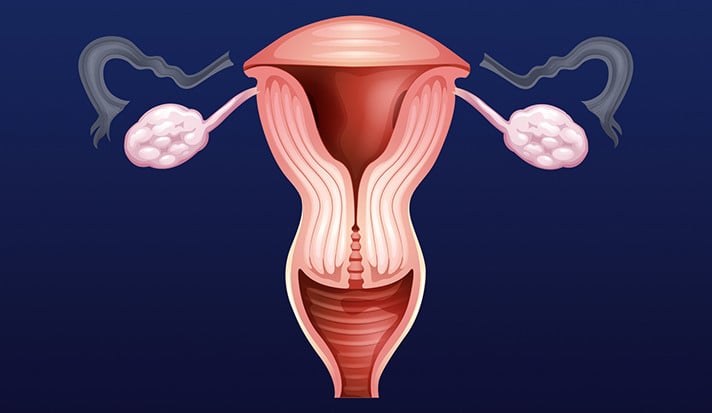
Sodiq Ojuroungbe
Medical experts specialising in the treatment of cancers have disagreed over a report urging more women to consider having their fallopian tubes removed to prevent ovarian cancer.
The oncologists in separate interviews with Reportr Door Healthwise expressed different views on the report which is a recommendation of a cancer advocacy group urging women with a high genetic risk for ovarian cancer to get their fallopian tubes removed once they are sure they don’t want to become pregnant again.
It could be recalled that the Ovarian Cancer Research Alliance, recently recommended that to prevent ovarian cancer, women should consider having their fallopian tubes removed when they’re having other pelvic surgeries.
The cancer advocacy group also recommended that some lower-risk women should consider removing their fallopian tubes to prevent ovarian cancer.
OCRA in the new guidance noted that most ovarian cancers, particularly aggressive ones, actually start in the fallopian tubes.
However, speaking with our correspondent, the cancer specialists, Consultant Radiation and Clinical Oncologist at Lagos General Hospital, Dr. Kolade Uthman, and Clinical Oncology Specialist at Prince Faisal Bin Bandar Cancer Center, Al Qasim, Saudi Arabia, Dr. Charles Okwonna, while disagreeing on the removal of the fallopian tube, agreed that ovarian cancer is a highly heterogeneous disease and very difficult to detect.
Dr. Okwonna argued that having the fallopian tubes removed would not be enough to cut the risk if that was the purpose, noting that the fallopian tubes would have to be removed along with the ovaries and the uterus before the risk of having ovarian cancer can drop.
The medical expert stressed that there are no clearly defined preventive measures for the generality of women as regards ovarian cancer.
He said, “Removing the fallopian tubes alone does not confer protection to women. The fallopian tubes have to be removed along with the ovaries and uterus before the risk drops
“Till now, there are no clearly defined preventive measures for the generality of women. The only prevention that is recommended by WHO and most other professional associations is for women at increased risk.
“A woman whose sisters developed ovarian cancer at an early age, or a woman with a positive family history of breast and ovarian cancers, and women with confirmed genetic mutations in the family are at higher risk of having cancer.
“My advice for women, in general, is for anyone with a strong family history of ovarian, uterine, or breast cancer to go for regular screening for ovarian cancer by way of pelvic ultrasound scans. This is even more necessary if any of those family members developed any of those cancers at an age below 40 years. Otherwise, there is no recommendation for screening the general populace.
“The symptoms for ovarian cancer are generally non-specific and that’s part of the reason why they are often diagnosed at very advanced stages. The symptoms include abdominal pain, early satiety and loss of appetite, bloatedness, abdominal distension, constipation or diarrhea, irregular vaginal bleeding, menstrual irregularities, and infertility.”
In his submission, however, Dr. Uthman, argued that several reports have shown that those who have the operation to remove fallopian tubes have lower incidence rates of ovarian cancer.
He said, “If you consider the biology, perhaps we ought to refer to ovarian cancer as fallopian tube cancer and change the way we perceive it because that is where it begins.
“It was discovered that the most deadly and prevalent high-grade malignancies originated in the fallopian tube rather than the ovary and progressed rapidly from there.
“For people with an average risk of ovarian cancer, just the tubes need to be removed, as preserving the ovaries can benefit heart and brain health even after menopause.”
Speaking with Healthline, the president and chief executive officer of OCRA, Audra Moran said, “If a woman at average risk for the disease is done having children and is already having another pelvic surgery, she should speak with her doctor about having her fallopian tubes removed at the same time.
“For women who have a strong family history of breast, ovarian, uterine, or colorectal cancer, or a known genetic mutation, they may want to discuss with their doctor more immediate action.”
Copyright Reportr Door
All rights reserved. This material, and other digital content on this website, may not be reproduced, published, broadcast, rewritten or redistributed in whole or in part without prior express written permission from Reportr Door.
Contact: [email protected]




